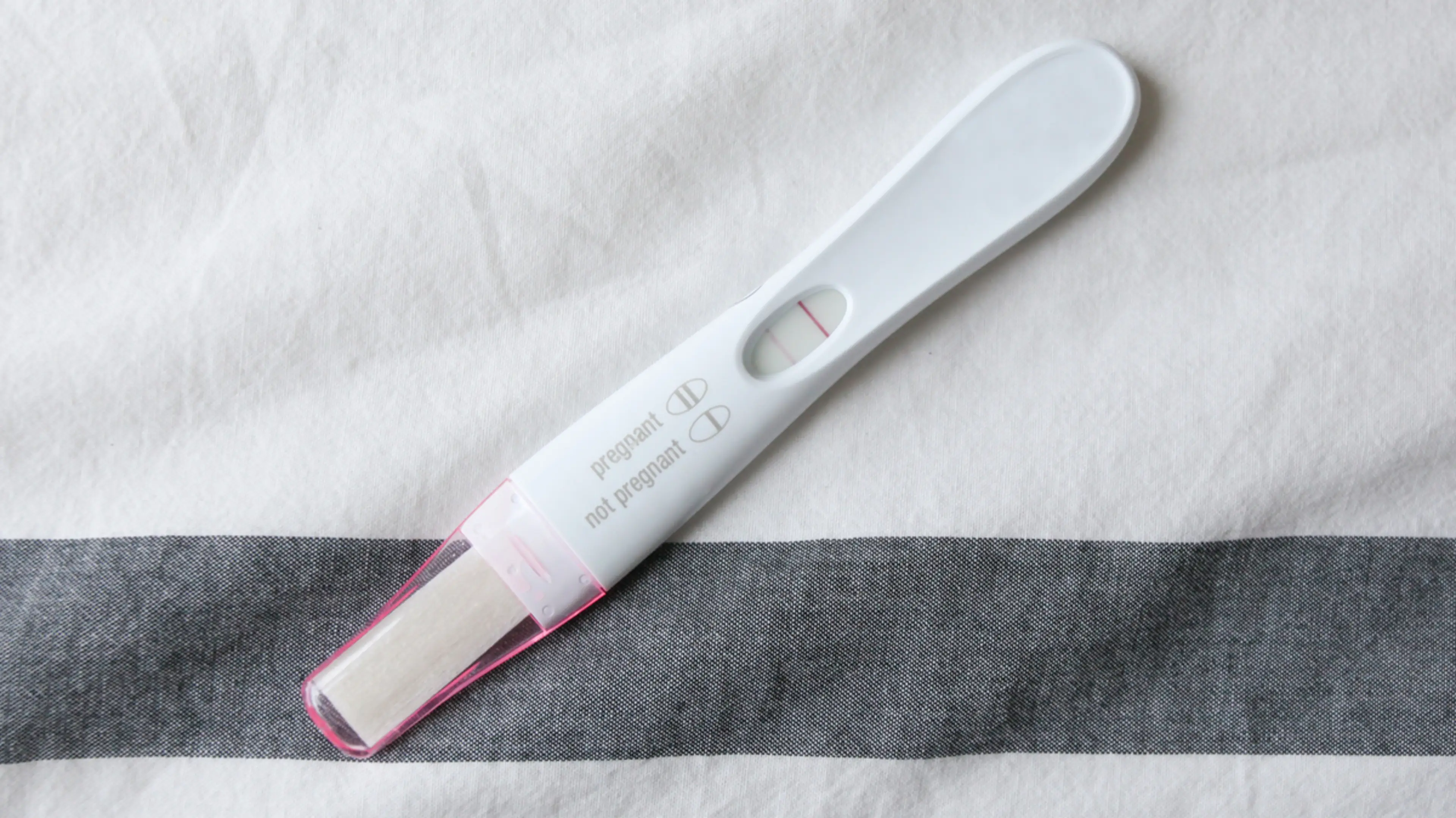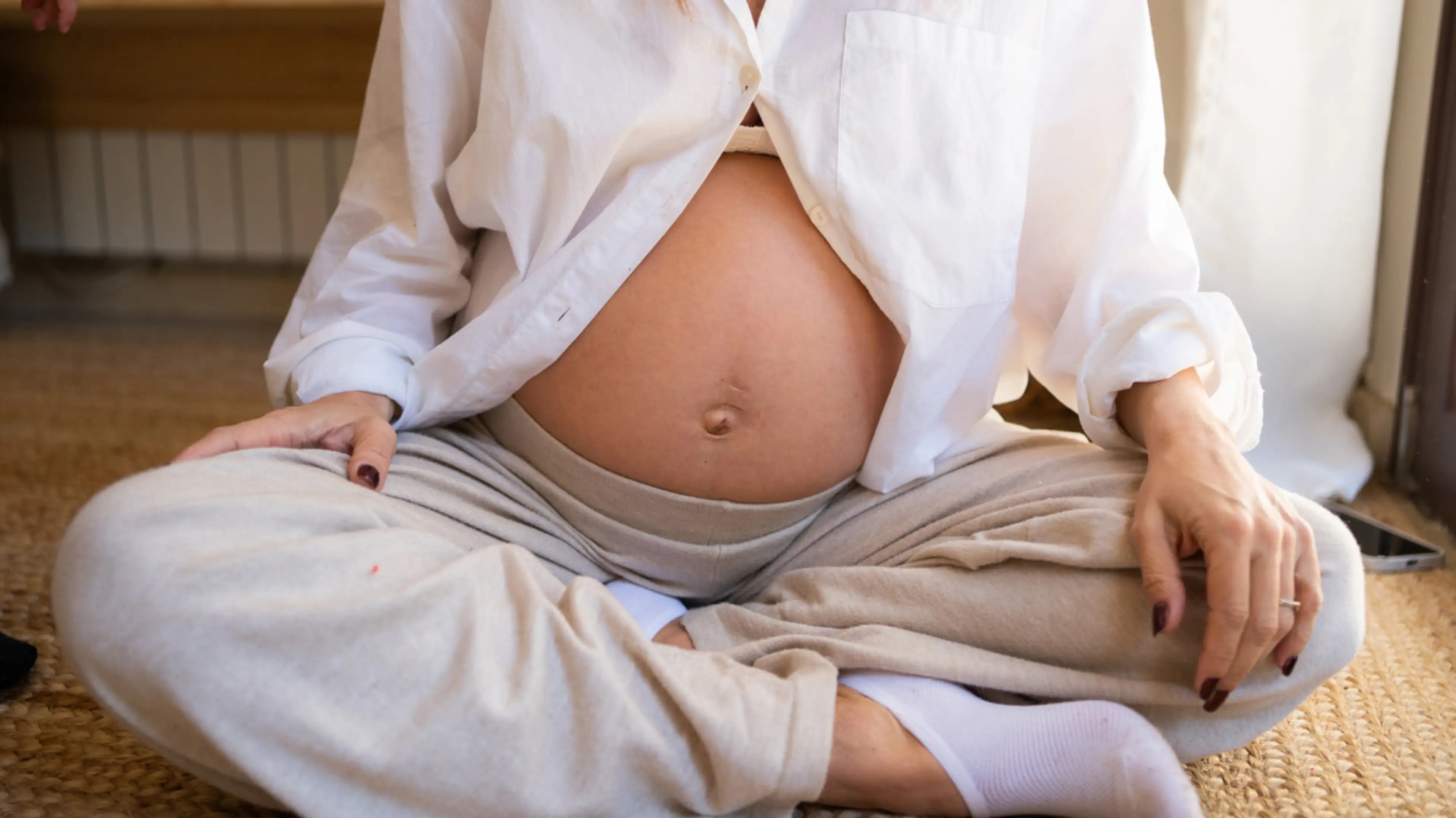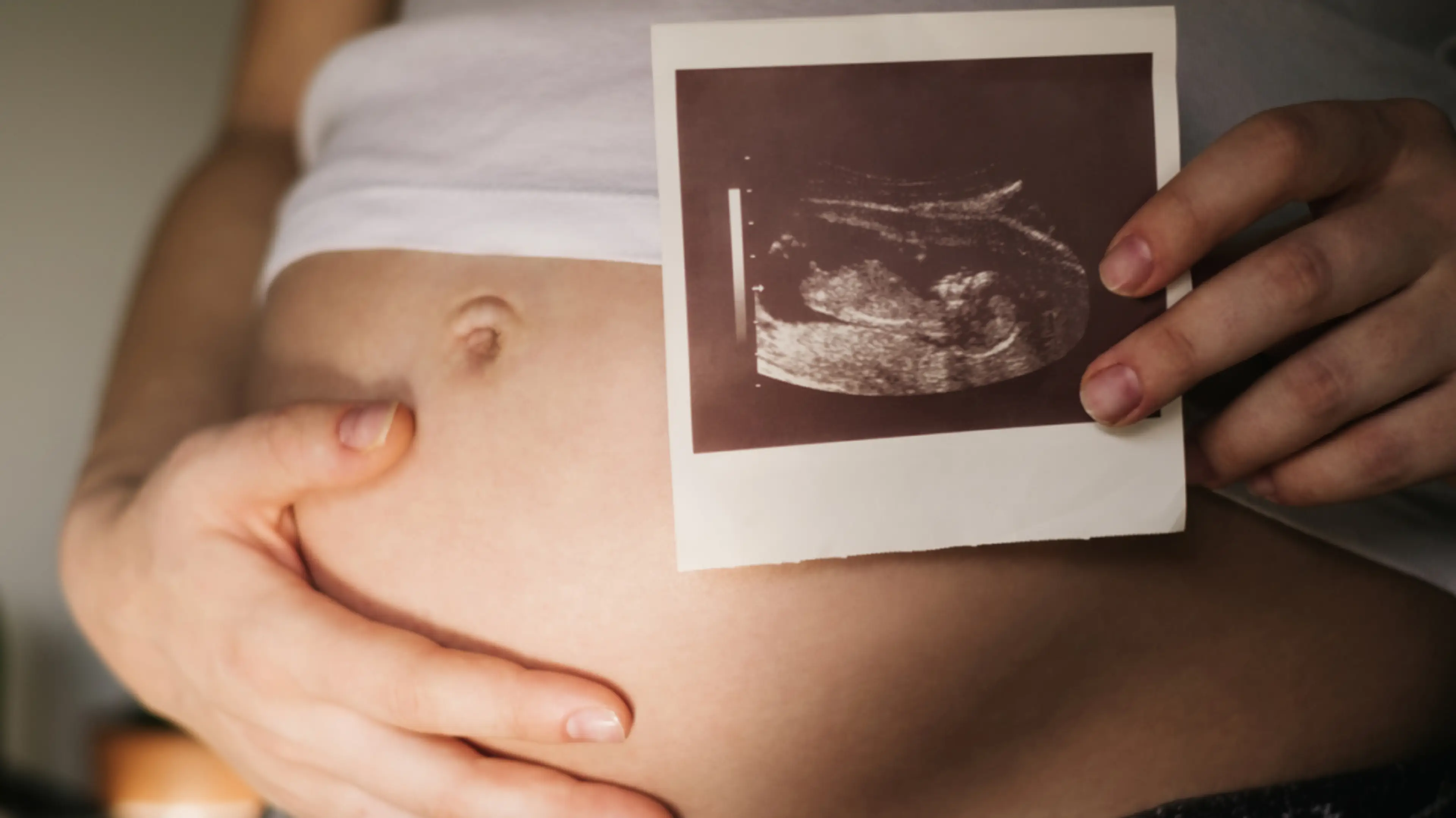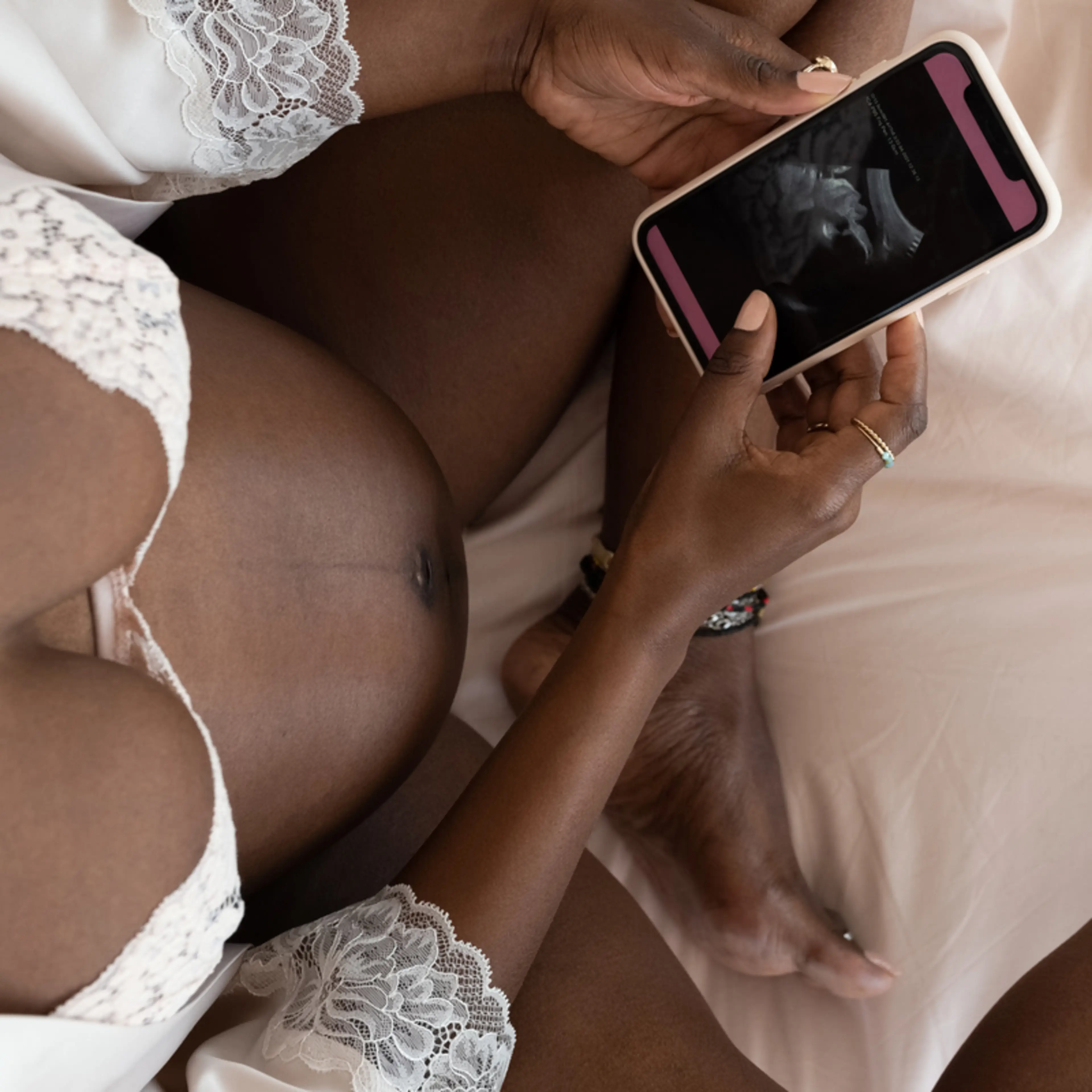TLDR: You took a pregnancy test and those two little lines popped up. After you’ve calmed your racing heart and called your people, you’re probably left wondering: now what? An experienced midwife lays out your first moves, from the tests to take to when to make your first appointment with a provider.
Are you feeling those classic pregnancy symptoms—nausea, sore breasts, bleeding gums, and fatigue? Or maybe you don’t feel any different physically, but mentally your emotions are racing—you’re excited, scared, happy, nervous, worried, confused, or all of the above at once. Whatever your experience, we understand! Becoming pregnant changes your life. You’re standing at the threshold of a new experience—and it’s a lot.
Before you start that baby registry or use a due date calculator to find out when baby is coming, here are our tips for navigating the first few days and weeks of pregnancy, including how to more accurately test and how to prep your body and mind for a healthy, happy, and connected experience.
Start Taking Prenatal Vitamins
You may be wondering how you should care for your body if you’re pregnant. Should you book an appointment with a provider ASAP? Stop eating sushi? Double down on your prenatal vitamins?
“As soon as you know that you want to become pregnant, you should be taking a prenatal vitamin. If you haven’t been, start taking one as soon as you get pregnant,” says Chloë Lubell, a certified nurse midwife with Cosmos Midwifery1 in Brooklyn, NY.
Other than that, there’s nothing special you should do in terms of caring for your body at this point.
“Enjoy your life! Eat good quality food if you’re not nauseous. Rest if you’re tired. Trust that your body is taking care of you in all sorts of ways,” Lubell says.
Schedule Your First Prenatal Appointment—But No Rush
It’s common to wonder when you should start going to the doctor when you get pregnant. Most obstetric providers, whether they’re physicians or midwives, don’t begin prenatal visits until 8 or sometimes even 12 weeks of pregnancy. However, there are risk factors that may cause you to seek care earlier than this, including if you’ve previously had an ectopic pregnancy or used fertility treatments to become pregnant.
So that means you don’t have to reach out to a provider right away. Still, says Lubell, you can if you want to.
“If you’re worried, you can always say, ‘Hey, I want to check in with someone now.’ You can have a phone call with a provider or message them through an online portal," she explains. "If you are uncomfortable or if you are nauseous, you don’t have to grin and bear it. You can reach out and say, ‘I need some support around my nausea, my anxiety, my extreme fatigue,’ or other symptoms you might feel in the first trimester.”
If you’re worried or anxious about your pregnancy, you may want to have an ultrasound. In general, an ultrasound will not show anything in the uterus until about 5.5 to 6 weeks gestation and a heartbeat will likely not be visible or audible until about 7 to 8 weeks.
Having an ultrasound is not a necessary or routinely recommended clinical step in early pregnancy, but Lubell says, “If you think having an ultrasound would be useful for your mental health, then it’s useful for the pregnancy.”
If you’ve previously had a pregnancy loss, you may wonder if there’s a reason to get early medical care in a subsequent pregnancy. In general, Lubell says no.
“Having one miscarriage does not increase your risk of having another one.”
Lubell adds, “Almost all of my clients have had at least one miscarriage, but it doesn’t mean that another pregnancy is going to be difficult for them to achieve. If you’ve previously miscarried and are pregnant again, you don’t need to do anything special. You can continue to trust that your body is doing what it needs to do.”
Still, if you suspect a miscarriage or you start having symptoms like pain or bleeding, contact a medical provider right away.
Support Your Emotional and Mental Health
Back to those swirling emotions—how can you support your emotional and mental health during the early days and weeks of pregnancy?
Much of the worry and anxiety after that positive pregnancy test comes from the fundamental uncertainty of this time of life. There will always be some level of unknown to navigate in the first trimester, especially in the very beginning. There’s no sure way to know if your pregnancy will progress or how things will go. For many people, accepting that uncertainty is difficult and uncomfortable.
Meditation can help you navigate these feelings of worry and anxiety. Meditation and mindfulness are some of the easiest—and most evidence-backed—ways to do so. A systematic review and meta-analysis in 2017 found that mindfulness-based interventions in pregnancy have varied benefits2 , including lower levels of stress, anxiety, and depression. Meditation can also support your sleep3 . Expectful offers meditations that are specially created for the first trimester, including those that help you navigate uncertain moments, connect with your baby and yourself, and tap into self-love.
In addition to practicing mindfulness, you can care for yourself in ways that feel good for you. Rest and relax as much as you need to. Exercise if it feels right. Stay involved in the activities you enjoy. Talk to a therapist. Enjoy a healthy diet. Go about your life as normally as possible, especially before early pregnancy symptoms like nausea, fatigue, or frequent urination show up. (Note, though, that not everyone has these symptoms and that their absence does not mean anything about the viability of a pregnancy).
If you want to start making some plans for the next few months, like downloading a pregnancy app, ordering a few books, or contacting a doula in your area, those can be fun and exciting steps to take. Above all, be kind to yourself and remain open to the way your feelings may change and evolve over the course of your pregnancy.
“Treat yourself the way that you would treat your best friend. Try to avoid negative self-talk,” Lubell adds.
Speaking of friends, it can be helpful for some people to choose a trusted friend to confide in during these first few weeks and months of growing a new human (especially if you don’t feel comfortable telling your wider community about your pregnancy until later). It could be your partner or someone who’s already an experienced parent (which can come with useful “been there”-style advice), or anyone who truly sees and hears you.
Lubell agrees: “Telling your friends and your family—as long as you know that they will be able to be supportive of you—is really valuable.”
However you approach your early pregnancy, give yourself grace and care during this time, mentally, emotionally, and physically. You’re embarking on one of the most special (and most intense!) experiences of your life, so now is the time to cultivate a sense of mindfulness and gentleness with yourself.












